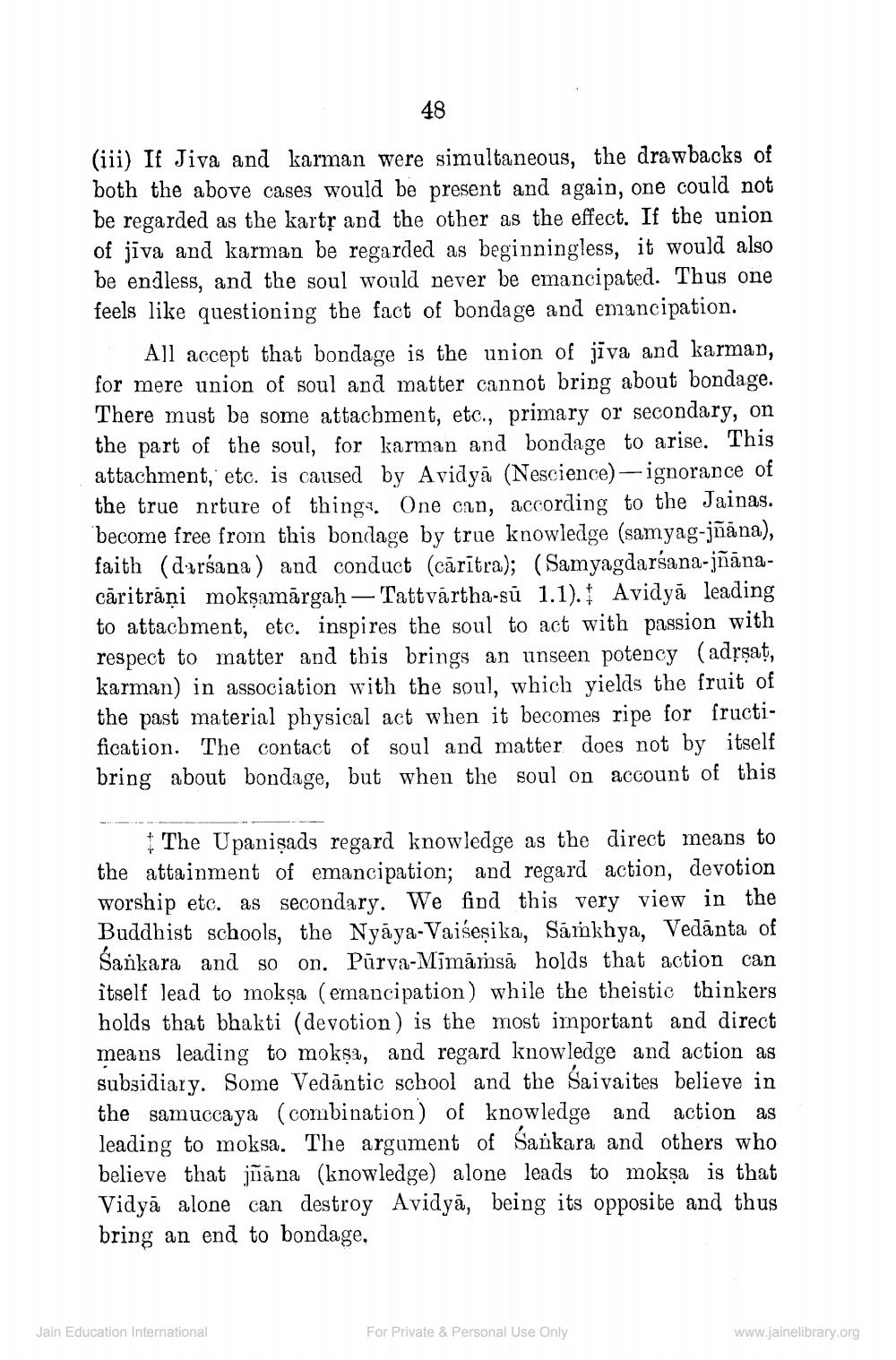________________
48
(iii) If Jiva and karman were simultaneous, the drawbacks of both the above cases would be present and again, one could not be regarded as the kart; and the other as the effect. If the union of jīva and karman be regarded as beginningless, it would also be endless, and the soul would never be emancipated. Thus one feels like questioning the fact of bondage and emancipation.
All accept that bondage is the union of jīva and karman, for mere union of soul and matter cannot bring about bondage. There must be some attachment, etc., primary or secondary, on the part of the soul, for karman and bondage to arise. This attachment, etc. is caused by Avidyā (Nescience) - ignorance of the true nrture of things. One can, according to the Jainas. become free from this bondage by true knowledge (samyag-jñāna), faith (darśana ) and conduct (cărītra); (Samyagdarśana-jñānacăritraņi mokşamārgaḥ - Tattvartha-sū 1.1). # Avidy, leading to attachment, etc. inspires the soul to act with passion with respect to matter and this brings an unseen potency (adrșat, karman) in association with the soul, which yields the fruit of the past material physical act when it becomes ripe for fructification. The contact of soul and matter does not by itself bring about bondage, but when the soul on account of this
The Upanişads regard knowledge as the direct means to the attainment of emancipation; and regard action, devotion worship etc. as secondary. We find this very view in the Buddhist schools, the Nyāya-Vaišeşika, Sámkhya, Vedānta of Sankara and so on. Purva-Mīmāmsă holds that action can itself lead to moksa (emancipation) while the theistic thinkers holds that bhakti (devotion) is the most important and direct means leading to mokşa, and regard knowledge and action as subsidiary. Some Vedāntic school and the Saivaites believe in the samuccaya (combination) of knowledge and action as leading to moksa. The argument of Sankara and others who believe that jñāna (knowledge) alone leads to mokṣa is that Vidyā alone can destroy Avidyā, being its opposite and thus bring an end to bondage,
Jain Education International
For Private & Personal Use Only
www.jainelibrary.org




